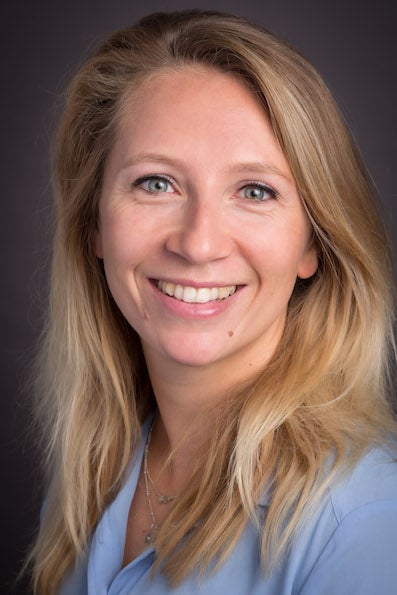Joyce’s fascination with human behavior led her to Social Psychology. “You learn that people are influenced by a lot of factors in their environment.” The Research Master helped her ask the right questions. “What is the extent to which I am a product of my behavior, of my surroundings, of the people in my society, of what I see and experience around me? This is something you can properly research, which makes it so interesting, you can really uncover the influences underlying behavior and then you know: if we change this, we can change the behavior as well.”
SUSTAINABILTY
Joyce chose not to pursue a PhD, but to continue her research work combining it with a more practical application by joining the AUAS research group. “Our research group focuses on the incentives that will truly motivate people to change their behavior when it comes to sustainability and how we can encourage this.” She can’t emphasize the importance of sustainability enough. “Sustainability is a very relevant subject. It will only become more relevant in the future. The behavior of people is key. You can create the coolest technological innovative solutions, but it’s people that have to use them, people who need to change. It’s all about their behavior.”
Joyce would recommend the Research Master Social Psychology to anyone who ‘is a nerd for research’. “Science professors from all over the world were flown in to teach us. Imagine: you just studied the research papers, and then the scientist is standing there, explaining it to you, listening to your ideas and helping you out on your own research questions. I thought this was incredibly cool.” Joyce has some special memories about the fieldwork she did. “We were part of a study that focused on the influence of the women’s menstruation circle on their male partner. So, of course we did some interviews, let the participants keep diaries, but we also did an analysis of their urine they saved for us in containers. Once a week we had to pick them all up at their houses. Can you imagine me on my bike racing back to VU with bags full of urine? It was quite the adventure, haha.”
It has been an enormously valuable experience for Joyce: “At VU I learned to properly do high quality research. We had to write a lot of research proposals, I mean - really a lot. But it meant we were always challenged. We were really getting experienced in composing our research. You learned to perfect your research proposal, but also to compose the best literature review. I can do it with my eyes closed.” “I might not have chosen the PhD path, but it was still the perfect master for me because it helps me to excel in my current research job.”
Contributing is important to Joyce “Sustainability is one of the most important research subjects. There’s still a lot that needs to researched and it’s something that concerns all of us as a community. We should all get into action! But how? This is how social psychologists can really contribute: advising on the ‘how’.”
